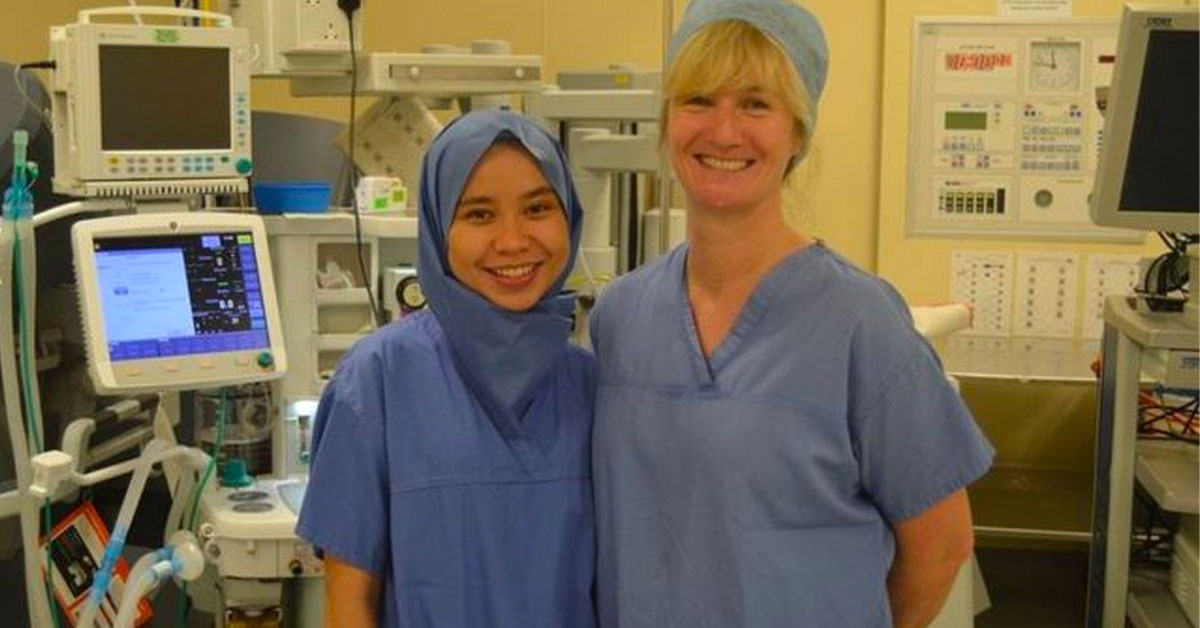Recently there have been encouraging strides towards equality of clothing for Muslim women, with Nike announcing its swimwear line for women seeking more modest attires.

The world as a whole has been increasingly accepting of people of different backgrounds, and increasingly understanding of Muslim traditions and customs.
That hopeful progress does not just end in swimming pools though. It has now even been extended to the operating theatre, for passionate Muslim female doctors or nurses.
Say hello to the sterile and disposable hijabs.

Sterile Only
In operating theatres, even the slightest bit of germs and bacteria may prove fatal. During an operation, absolutely no pathogens must be allowed to enter the body of the patient, as his body is literally open and vulnerable.
Any such infections can lead to serious complications.
Usually, surgeons can simply replace their attire after every operation. They just toss away their dirty set and put on a new one, as operating gowns and masks are all disposable.
However, a Muslim woman doctor cannot do that. As she is required by faith to wear her hijab, she cannot then stay in operating theatres, because hijabs have not been made disposable.
As the hijab gets dirty, the presence of the female Muslim doctor in the room would then be unfortunately a threat to the well-being of the patient. Hence, many times these doctors would be respectfully asked to leave the operating theatre.

Luckily, a Malaysian junior doctor serving in the United Kingdom came up with a solution.
Disposable Hijabs
Looking towards Malaysian hospitals for inspiration, Junior doctor Farah Roslan introduced disposable sterile headscarves for staff to use in the operation rooms of Royal Derby Hospital in the UK.

Farah, who is currently working in Lincolnshire, said that the idea came to her during her studying years as a medical student in the University Hospitals of Derby and Burton NHS Trust.
She realised that a full day of operation while wearing the same hijab probably meant that the hijab would carry infections.
She would not be comfortable with taking it off and hence did not participate in various operations.

This, however, was not tolerable for the passionate young doctor.
She said that she wanted to create a foundation that compliments both “dress code due to faith” and the “passion” of being a surgeon.
Farah’s mentor, consultant surgeon Gill Tierney was very supportive of the new article of clothing.



